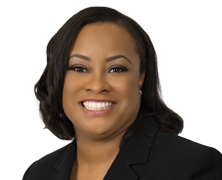Not many decades ago, women were told a specific definition of what it means to be successful. I believe because of that women today can sometimes shy away from being unconventional and transformative. However, today, even as women, there is an opportunity for each of us to define for ourselves what it means to be successful—those that may be non-prescriptive and unbounded, bold and groundbreaking.
In 1991, I did just that—I ignored my family’s conventions. Instead of pursuing a degree in education, I majored in biomedical engineering.
College proved challenging. I suffered chronic illness in college, and as a result, faced many academic challenges. However, my decision proved invaluable in helping me to grow both personally and professionally. Because of those experiences, I was able to develop a strong sense of purpose, and to determine early on those factors that meant success for Lana: good health; strong, solid, personal relationships with others; and making a positive impact through mentoring women. Having those experiences, and now a heightened sense of self-awareness, I am able to pursue, with confidence, those things that meet my personal definition of success and are personally rewarding.
On your life journey, I encourage you to take every opportunity to challenge norms of the past. Be evolutionary, revolutionary, and create a definition of success that is both meaningful and fulfilling to you and you alone. Challenge your self-awareness. Take time to explore yourself, and understand you. Instead of exhausting energy in improving weak areas, discover and develop those attributes about yourself in which you excel. Apply that knowledge of yourself to those areas where they can be further enhanced—your success will follow.
How has education affected your career?
Education has taught me to think broadly. I apply that broad range of thinking to develop a well-rounded career.
Has discrimination affected you as a woman in the workplace? How did you deal with it?
Yes, it has. There were situations when men were given more technically challenging projects because the supervisor felt that as a woman I needed to spend more time at home with family. I dealt with this by creating partnerships with my male colleagues to assist them in challenging areas on these projects. This positioned me so I could not only learn about more complex issues, but build healthy working relationships and garner respect for my competencies and talents.
What advice would you give young women building/preparing for a career?
Always place yourself in a continuous learning environment. Here you will grow self-awareness and learn where you should best apply yourself to be successful.







